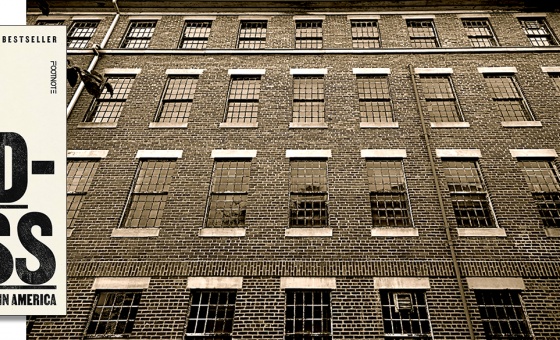This is the last article you can read this month
You can read more article this month
You can read more articles this month
Sorry your limit is up for this month
Reset on:
Please help support the Morning Star by subscribing here

WORKING-CLASS idealist, scholar of Marx, Gramsci and Trotsky, cradle Catholic and lifelong socialist, Trevor Griffiths produced plays that managed to be deeply controversial and highly popular.
There cannot be many of us on the left, with knowledge of the English language, who have not been touched by the writer’s work. As visceral as it was erudite, his writing brought class analysis, criticism of factionalism, and profound empathy to the theatre and TV screens, from the 1960s to the present day.
The canon is substantial, from his homage to Gramsci in Occupations, to a spotlight on parliamentary democracy (or the lack of) in Bill Brand, via his scathing critique of the revolutionary left in The Party.
He wrote a screenplay for Warren Beatty, on the life of American communist John Reed, though Griffiths left the film project early. Reds went on to win an Oscar for Beatty, as director.
In the making of Food for Ravens, his paean to Aneurin Bevan, there are clues as to Griffiths’s sometimes bumpy relationships with producers. The script had gone to BBC Drama in 1996, ready to celebrate the centenary of Bevan’s birth the following year. The ever fickle BBC turned it down, with then head of drama, David Thompson, saying: "You’d need a degree in political science to know what was going on.”
BBC Wales scooped it up, and the biopic won Bafta’s prestigious Gwyn Alf Williams Award.
The Beeb later gave the play a graveyard slot on BBC2, and several airings since.

There’s a theme in the Bevan piece, which emerges again in the glorious Comedians, on whether a conscientious man should make compromises, for success or power.
Director Richard Eyre, who still says the script is “the best play of the 1970s,” was artistic director at Nottingham Playhouse, which staged Comedians in 1975. Peter Hall saw it and wrote in his diary: ”Trevor’s previous plays were cerebral, political, challenging the audience intellectually. This play fucks them; it achieves a full human congress with them.”
Griffiths had stumbled upon an elderly comic, in a room above a pub, teaching aspiring stand-ups. At a time when we TV viewers were suffering the racist Bernard Manning and his stablemates, Griffiths devised characters who heralded the advent of alternative comedy. Ironically, the relatively “liberal elite” audiences also laughed at the racist, sexist comic.
Comedians might have been an uncomfortable night in the theatre, but Griffiths certainly tapped into the zeitgeist before it actually took hold. His legacy is evident in the play’s longevity; it has been in constant production worldwide since its debut.
Those of us who relished any Play for Today bearing Griffiths’s name had another treat in the 1976 mini-series Bill Brand, with Jack Shepherd facing dilemmas political and personal. Its challenge — whether the Labour Party provides the best vehicle for socialist values and radical change — is echoed now in the questions we ask (or shout at the telly) every day.
Griffiths said of his creation: ”What I was trying to say throughout the series was that the traditions of the labour movement were inadequate to take the struggle further, and that we had to discover new traditions or revive even older ones. And that we had to seek connective tissue between electoral party politics, which still has a mystifying mass appeal, and extra-parliamentary socialist activity.”
In 2009, Shakespeare’s Globe staged A New World: A Life of Thomas Paine, with the first half covering the revolutionary theorist’s part in the American Revolution. In the second, Paine is alongside Danton in France. Many of us, thrilled by Griffiths’s fast-paced, three-hour spectacle, were bemused to see American tourists in the audience disappear at the interval. We thought Griffiths might have chuckled at this apparent solipsism. Those of us remaining were rewarded with a truly great piece of theatre.











